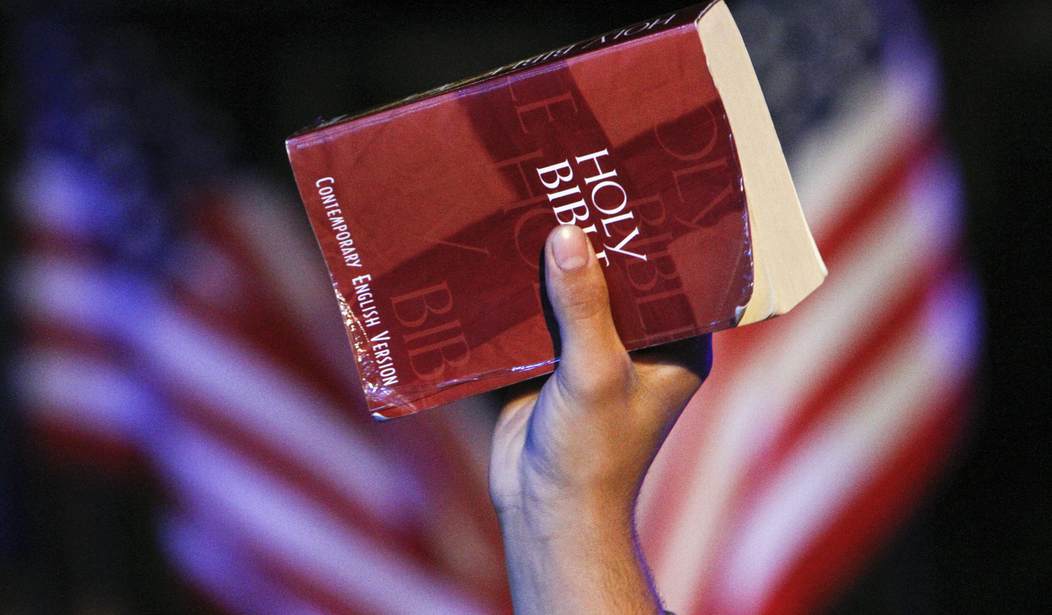Author's Note: All previous volumes of this series are here. The first 56 volumes are compiled into the book "Bible Study For Those Who Don't Read The Bible." "Part Two," featuring volumes 57-113, was published in December 2022.
Thanks for joining us today. Increasingly, I have been hearing phrases in conversations and across media platforms that are rooted in the Bible. Long-time loyal readers may recall my six-part series, “Common Phrases Rooted in the Bible,” beginning with Volume 67 in 2021. Then, in 2023, the series continued with parts 2, 3, 4, 5, ending with part 6 - Vol. 193.
An interesting aspect of hearing people use biblically based phrases is that they often don’t realize the phrases originated from the Bible. The primary reason is that Bible reading has declined over the past decades. However, last year saw a “slight uptick,” according to the annual American Bible Society’s State of the Bible 2025, which stated:
“For decades, religious companies have produced faith-based films that found churchgoing audiences. But The Chosen has pushed far beyond that. Its producing team ‘estimates that the show has been watched by more than 280 million unique viewers worldwide, a third of whom it says are not religious.’ This ‘not religious’ audience intrigues us. That’s 90 million-plus, in the U.S. and elsewhere, who presumably are not Bible readers, yet have tuned in to a creative, Bible-based account of the life and teachings of Jesus.” Their analysis continued:
“Whatever your opinion of The Chosen, its popularity raises a question for anyone interested in how Americans connect with the Bible. Could The Chosen—or other similar presentations in the future— have a significant effect on the people we call Bible Disengaged or non-Bible Users or Non-Practicing Christians? America’s relationship with the Bible took a serious downturn a few years ago, and it has wallowed in a statistical trough ever since. This year, we see a slight uptick. Is this a reversal of a previous trend? Time will tell.”
Recommended
So before we “eat, drink, and be merry” to celebrate that “Good News,” let's review some of the most commonly used sayings. And then, if you hear someone use one, ask, “Did you know that came from the Bible?” Most likely, the answer will be “no.” For example, initially, I was unaware that the Old Testament book of Ecclesiastes (thought to be authored by King Solomon) was the source of the uplifting saying quoted above. But, if asked on a game show, I would have guessed Shakespeare. Here is the verse:
“So I commended enjoyment, because a man has nothing better under the sun than to eat, drink, and be merry; for this will remain with him in his labor all the days of his life which God gives him under the sun” (Ecclesiastes 8:15).
These days, when someone on a communication platform refers to an underdog or against-all-odds conflict as a David vs. Goliath battle, I wonder if the entire audience understands its meaning. Due to a vast cultural decline, once assumed general levels of basic biblical knowledge cannot be taken for granted.
Usually, the most commonly uttered phrases do not assume knowledge. However, “good Samaritan,” which ranks high among the most frequently used, certainly does require some. If you use it without knowing the details, read the passage or Vol. 64 for all the details.
Note that the words “good Samaritan” do not appear in the parable told by Jesus about sacrificial love for your neighbor, even if he is a lowly person. Here is the only reference:
“But a Samaritan, as he traveled, came where the man was; and when he saw him, he took pity on him.”(Luke 10:33).
Then the Samaritan took extra care of the man suffering from being brutally attacked by robbers. Critical to the parable’s lesson is that in Jesus’s time, Jews discriminated against Samaritans. Therefore, Jesus controversially commended the merciful actions of a despised Samaritan man, contrasting him with both an upper-class priest and a Levite who passed by the injured man without stopping.
Moving on, the phrase “blind leading the blind” is self-explanatory and applies to many situations. However, the Gospel parable is about ignorant faith leaders leading their people “into a pit.” Jesus often railed against the Pharisees since they were so focused on keeping rules that they were spiritually blind. The verse records Jesus saying:
“Leave them; they are blind guides. If the blind lead the blind, both will fall into a pit” (Matthew 15:14).
Next is the “kiss of death,” a dramatic phase widely referenced across the culture, especially in the entertainment sphere. But how many people know that it was derived from Judas betraying Jesus with a kiss? Again, the exact words are not in the Bible, just the description of events:
“Now the betrayer had arranged a signal with them: ‘The one I kiss is the man; arrest him.’ Going at once to Jesus, Judas said, ‘Greetings, Rabbi!’ and kissed him. Jesus replied, ‘Do what you came for, friend.’ Then the men stepped forward, seized Jesus and arrested him” (Matthew 26: 48-50).
My recent study, Vol. 284, discussed the Gospel story from which originated the phrase “walks on water.” Currently, it is used to mock someone whom others think has an inflated opinion of themselves. Or, that management believes a high-performing person “walks on water.” The verse reads in part:
“..Jesus went out to them, walking on the lake. When the disciples saw him walking on the lake, they were terrified…. Then Peter got down out of the boat, walked on the water and came toward Jesus” (Matthew 14:22-33).
The following phrase is one that we have all used at one time or another, accusing someone of “putting words in my mouth.” The story, recorded in 2 Samuel 14, is about a betrayal of King David:
“‘Then go to the king and speak these words to him.’ And Joab put the words in her mouth’” (2 Samuel 14:3).
Lastly, there is the word “scapegoat,” which is among the most well-known biblical sayings not usually associated with the Bible. The complete story is from Leviticus 16, when God speaks to Moses about how the Israelites must annually atone for their sins:
“He (Aaron) is to lay both hands on the head of the live goat and confess over it all the wickedness and rebellion of the Israelites—all their sins—and put them on the goat’s head. He shall send the goat away into the wilderness in the care of someone appointed for the task. The goat will carry on itself all their sins to a remote place; and the man shall release it in the wilderness” (Leviticus 16: 21-22).
That event is annually memorialized at “Yom Kippur,” the most holy Jewish holiday known as the “Day of Atonement.” Read more in Vol. 28 - “Yom Kippur and the Scapegoat.” And Vol. 235 – “New Testament Warnings about Sin.” This year, Yom Kippur begins on Oct. 1 at sundown.
To recap, the theory behind today’s study is for Bible readers to call out non-Bible readers whenever they use a saying that originated from the Bible. By calling attention to biblical roots, non-readers or non-believers might feel more inclined to open a Bible.
Amen to that!
Myra Kahn Adams is a conservative political and religious writer. Her book "Bible Study For Those Who Don't Read The Bible" reprints the first 56 volumes of this popular study. "Part 2,” reprints Vols. 57 –113. Order it here.
She is also the Executive Director of the National Shroud of Turin Exhibit. You can join our new effort in Orlando, Florida. Contact: Myraadams01@gmail.com
























Join the conversation as a VIP Member